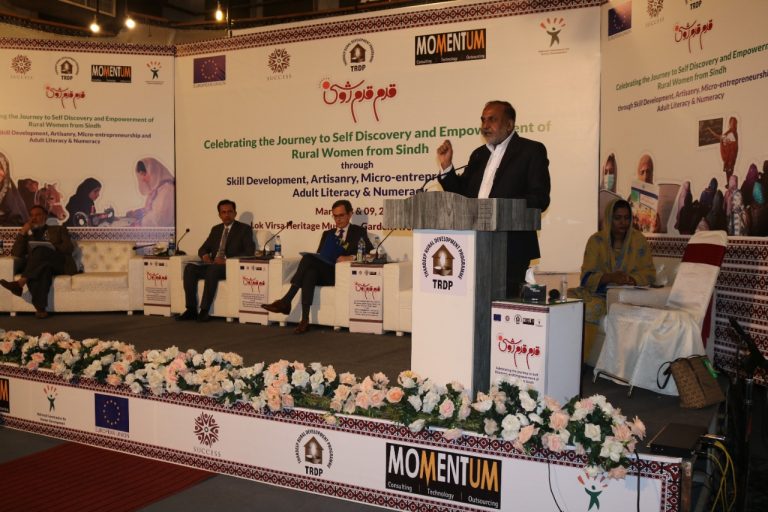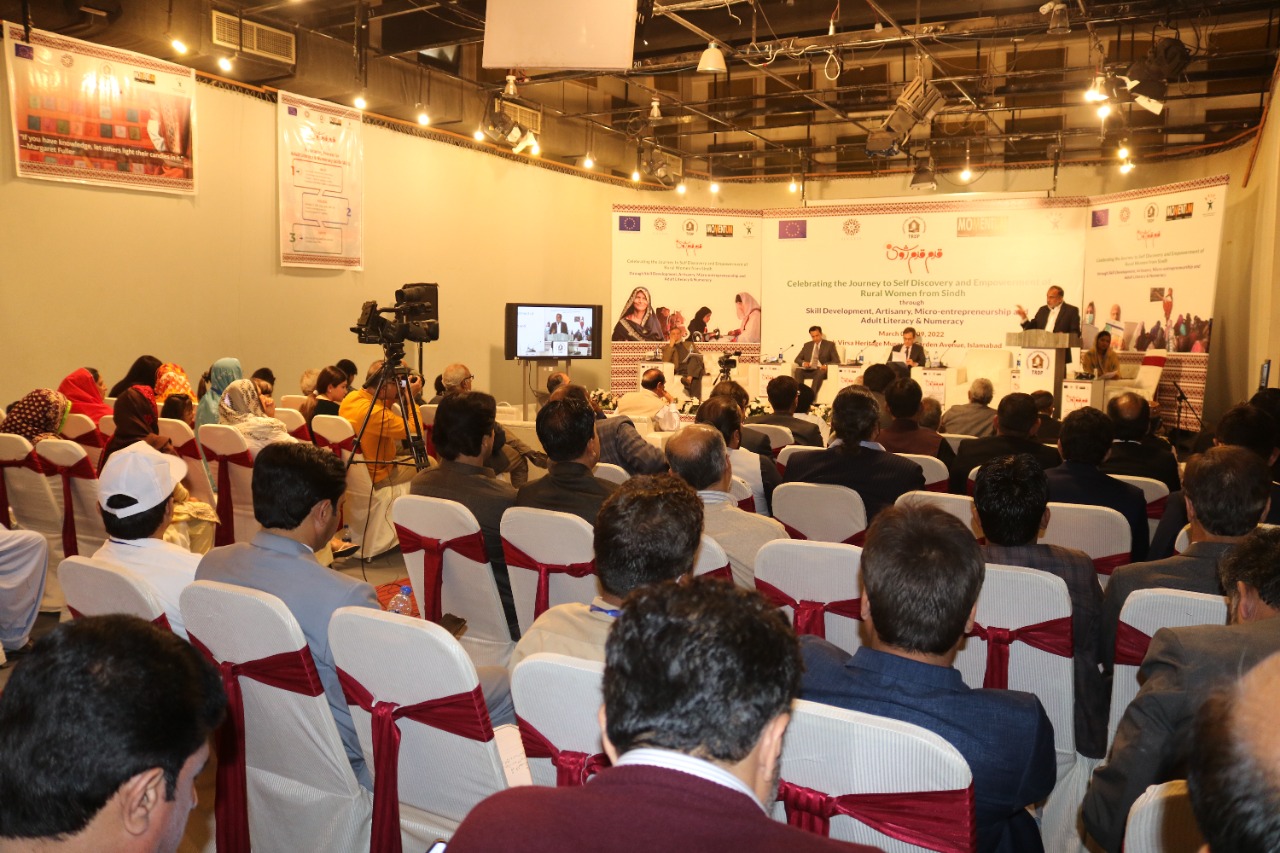
Gender-bias is deeply rooted in cultures, economies, political and social institutions around the world.
Islamabad
On the occasion of international women’s day event here on Tuesday, the speakers said that Gender biasness is deeply rooted in cultures, economies, political and social institutions around the world. Women and girls are facing unacceptable levels of discrimination and abuse, which is not only wrong, but also prevents them from playing a full part in society and development. Efforts are made internationally to deal with this issue, Women Day is being observed across the world with the theme “gender equality today for sustainable tomorrow” this year.
Chairman NCHD while addressing the conference congratulated the organizers and explained the importance of education in the remote areas especially for women. He said NCHD’s Literacy program is focusing on the rural women we had made more than 4 million adult literate.
A documentary highlighting the importance of education and different educationist express their views for the empowerment of rural women is the need of the day.
Chief guest Dr. Nasim Ashraf & Mr. Thomas Seiler Deputy Head of Delegation, European Union delegation appreciated the efforts of TRDP, Momentum & NCHD for organizing such event.
Dr. Nasim said that education is the single equalizer for the society. Pakistan lag behind in the HDI just because of lack of will of government of Pakistan, we can only achieve political stability if we invest in education of the nation. NCHD was created to support the line departments and improve HDIs with the support of government.
Chief Secretary Education said Literacy and Education for All are part of our national and international commitments. However Pakistan has one of the highest numbers of illiterate population in South Asia, and the world. Despite taking some serious measures for the eradication of illiteracy among the masses in Pakistan and Sindh, the female Literacy rate is very low, especially the rural women are at the bottom.
Chairman PHDF Dr. Nasim Ashraf the founder of NCHD had a great name in development sector of Pakistan. He had contributed for the literacy and women empowerment during his chairmanship. National level program for literacy was his honor. He said SUCCESS program had involved all the stakeholders for this noble cause. He asked PM Pakistan to call for literacy emergency in the country.
 Momentum Ventures in collaboration with NCHD had organized this conference to pay tribute to the hardworking women in remote areas and Women’s journey to self-discovery and empowerment of rural women through skill development Artisan, Micro Entrepreneurship, Adult Literacy and Numeracy skills. In 769 adult literacy center 20,000 illiterate women of Dadu and Jamshoro under the ALNS project, a component of the EU-funded SUCCESS program had acquired basic education and skills. Highlighting the need for expanding the reach of adult literacy across Pakistan, the event provided forum for deliberating the future course of giving illiterate adults a second chance at becoming literate and empowered.
Momentum Ventures in collaboration with NCHD had organized this conference to pay tribute to the hardworking women in remote areas and Women’s journey to self-discovery and empowerment of rural women through skill development Artisan, Micro Entrepreneurship, Adult Literacy and Numeracy skills. In 769 adult literacy center 20,000 illiterate women of Dadu and Jamshoro under the ALNS project, a component of the EU-funded SUCCESS program had acquired basic education and skills. Highlighting the need for expanding the reach of adult literacy across Pakistan, the event provided forum for deliberating the future course of giving illiterate adults a second chance at becoming literate and empowered.
Allah Nawaz Samoo Chief Executive Officer TRDP added that Today there are over 60 Million illiterate people in Pakistan and over 15 million illiterate people in the province of Sindh and irony of the situation is that most of them women and young persons. There is an urgent and an immediate need to eradicate illiteracy in order to build a more patient, tolerant and just society.
Mr. Jai Parkash Manger for Success Program said In rural Pakistan, gender inequality is witnessed in several domains, notably in access to education, decision-making and participation. Gender Concerns International reports depicts that the overall women’s rights in Pakistan has improved with increasing number of literate women, he informed. Elaborating the statistics he lamented that only 46% of girls aged 10 years and older are literate, compared to 69% of boys of the same age. This absence of girls from the academic sphere means that women are once again, absent from the professional realm, as we note that only 15.6% of women are actively engaged in the workforce compared to 49.3% of men.
Abid Gill Deputy Chief Advisor JICA -Aqal, official from UNESCO Pakistan, Ms. Ayesha Jamshed Country Director Welthungerhilfe (WHH), and Dr. Nasim Ashraf Chairman PHDF appreciated the efforts of Thradeep and Momentum for highlighting the crucial issue of women education and their efforts in education.
Ghulam Shabir chief operating officer Momentum thanked the honorable guests, organizers, learners and the participants for making the event a real success. (PR)
__________________